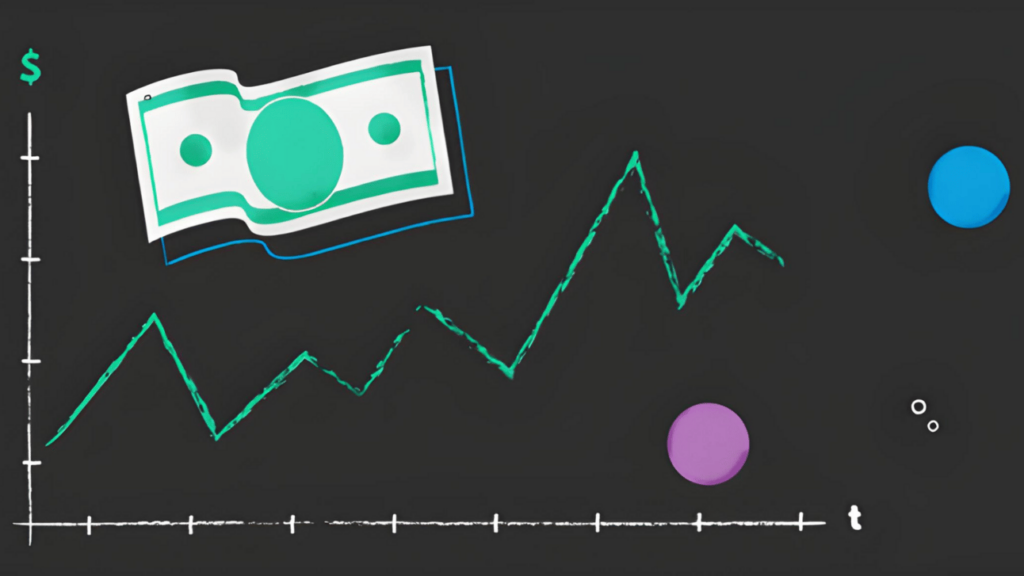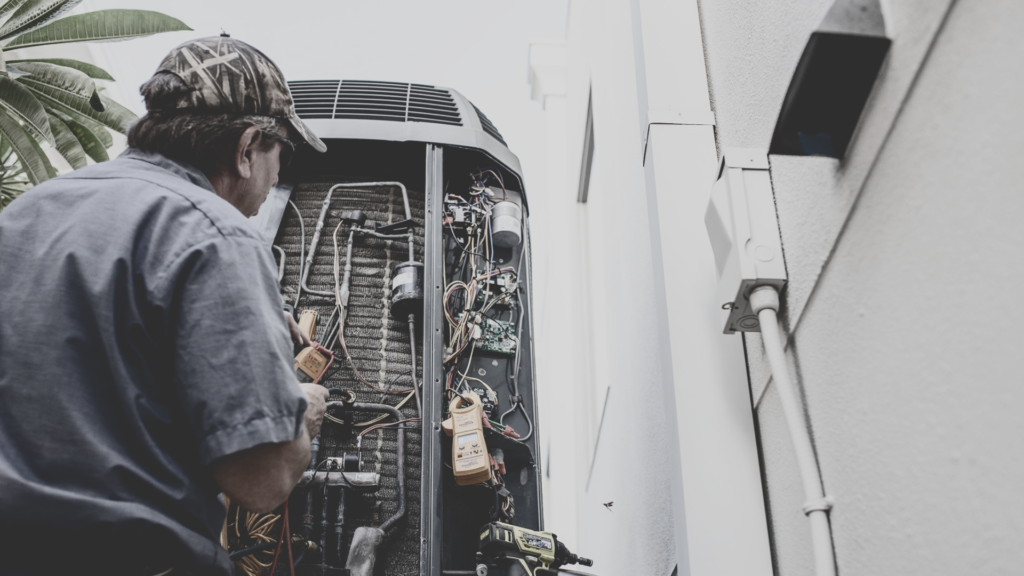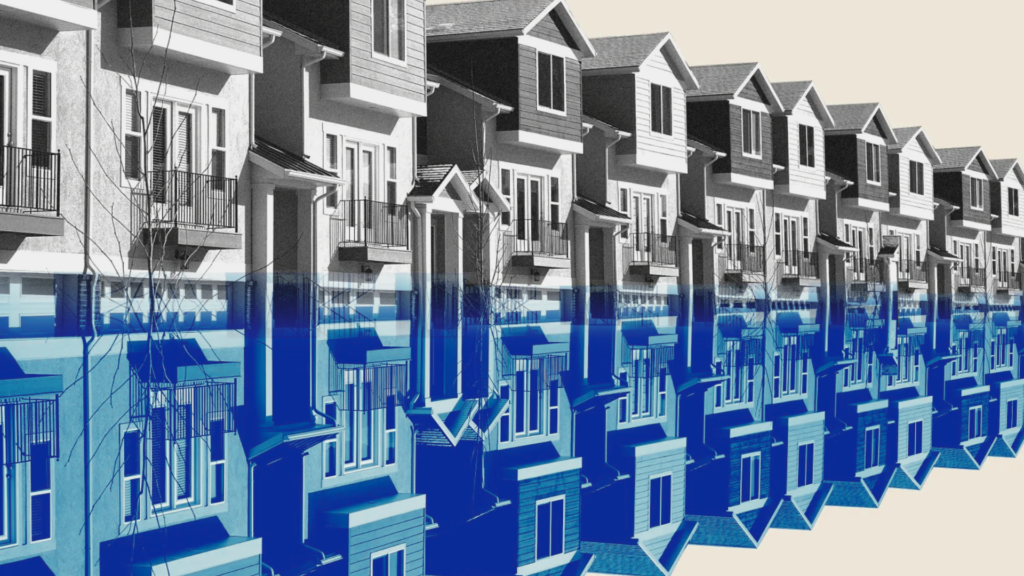Talking tech in home services with Housecall Pro co-founder Roland Ligtenberg
Notes on technology, labor, and the future of home services

❝
It’s the same in other industries. Big franchises exist in the food and restaurant space, but there are still mom-and-pop restaurants that people love.
Roland Ligtenberg is the co-founder and SVP of Growth & Innovation at Housecall Pro. He’s a technologist and entrepreneur who’s observed the sea of changes in home services — particularly with technology — over the past decade.
We talked about technology, the labor shortage, the future of home services, and more. Our conversation’s been lightly edited for brevity and clarity.
Can you give me some quick background on the company?
Yeah, there are five co-founders, and we met at Qualcomm. We wanted to build a business that served an underserved community. We were looking around, and in 2013, no one had built software for home service pros. We built mobile first and mobile only, and that was great for owner-operators because they could do everything from out in the field.
If you went to the app store, there was nothing for home services, and that’s obviously wrong. Home services are such a major part of the United States economy. There was just a mismatch — in the same way, there was a mismatch between the amount of people who need home service pros and the amount [of pros] that actually exist. There’s a supply imbalance.
Why have the home service industries been so slow to adopt technology?
I think when you don’t have to change your behavior, it’s easier not to. It just takes a bit. And in HVAC, there’s a lot you have to do to become a technician —like trade school and apprenticeships. That’s what you're focused on; that’s your skill — not necessarily having a business background. There are so many things that have to be done, you have to hyper-focus on what you do best.
Have consumers played a role in that?
When you think about Uber Eats and DoorDash, because consumers use them a lot, they get used to that behavior. But when was the last time you had someone fix your HVAC? It’s been years, so your exposure to that technology is really low. So the rate at which things change in home services is much slower.
But now we’re past the early majority, and we’re really battling that next group of pros that should be adopting because now it’s almost a detriment to your business if you don’t. You'll still have the demand, but you won’t be able to compete if you want to really grow your business.
All of the basics — scheduling, payments, etc — have been addressed, so what other pain points are you trying to address for contractors?
One recent issue is payroll. Your employees are your biggest expense. Why can’t you offer 401(k) plans and benefits right from your field service management software? Another issue is that consumers want to book things online. Millennials are the biggest purchasers right now, and they’re used to booking all kinds of things online.
There’s also just rounding out other stuff like expense cards because maybe there’s a technician who buys too many Snickers at 7-Eleven. Then, once you get to a certain size, you have to make sure you have everything in inventory to fulfill the jobs you sold. And then it becomes, “Who can I get those parts from? At what price? And are they available?”
Pretty soon here, contractors will expect that as soon as they sell a replacement, that thing shows up in their warehouse with all the parts they need. It’s still some years off, but they’re going to expect that. There’s also B2B lending, so you don’t have to go to your bank and fill out paperwork; you can just say within Housecall Pro, “Boom, I need $50k to buy a new truck.”
What do you think about consolidation in the home service industries?
It’s the same in other industries. Big franchises exist in the food and restaurant space, but there are still mom-and-pop restaurants that people love. There will always be Service Champions and Wrench Groups in the world, and there’s nothing wrong with that.
There’s so much demand for home services; it’s not like you’ll go out of business because someone gobbles up your competition.
❝
Currently, I’m very bullish on the different types of work that pros are doing that they don’t actually need to do because we can do it for them.
Are there any non-obvious ways that you think AI will impact contractors?
Things like ChatGPT are just the tip of the iceberg. We know so much about contractors using our platform, so I think what pros don’t realize is that it’s not just your own data, but the insights derived from the tens of millions of jobs per year going through our platform that can help make sure you’re priced correctly for your area code at the right time.
AI is more than just the data they have, it’s going to be the data of whatever platform they end up using that helps them figure out how to do better.
Will the trades always have a labor problem?
In the long term, there has to be an equilibrium because people are going to figure out their HVAC neighbors are millionaires. Over time, it has to even out. I think in 10, 20, or 30 years, there’s still going to be a big demand for services. And I think it’ll get fixed over time just through sheer economic forces.
But for a long time, there will be an imbalance because of the rate at which we’re growing and needing to change stuff. So I think there’s an opportunity to make your existing labor force more efficient, like using one of these [an Apple Vision Pro]. Real training on physical stuff is expensive, but if you can fix and break stuff 20 times virtually, that’s cool. I think [digital] learning and training tools will be able to upskill the labor market more quickly than before.
Do you see any big challenges ahead in the home service industries, like the economy?
No. When it comes to home services, they’re basic human needs. It’s recession-resistant; it’s black swan-resistant. If your plumbing stops working, you’ll still need a plumber, even if there’s some crazy disease.
Humans will appreciate problem-solving and creativity, but people won’t appreciate, “Man, Alec is the best scheduler or finder of inventory. I love that guy.” There will be things that become less and more valued, so I think it’ll become more polar. If humans are really good at things, they should focus on that, not the menial tasks like routing.
What are you most excited about, industry-wise or Housecall Pro-wise, in the coming years?
Currently, I’m very bullish on the different types of work that pros are doing that they don’t actually need to do because we can do it for them. Like, what if 17-year-old Alec could push a button and learn quickly how to do the basics of a job? Then on the job, Alec could be wearing a Vision Pro and having someone help him troubleshoot in real time.
My guess is that long-term, really big HVAC businesses will start to disappear and more smaller businesses will start to appear. You get economies of scale as you get big, but a lot of those are based on process automation. I think pay goes up, efficiency goes up, but the size of companies goes down, and what’s left are the core basics of what someone gets into the trades for — being able to solve problems with their hands, knowledge, and tools.
Anything else you want to say?
If you’re a pro trying to evaluate software, you should really have a checklist for how you make that decision. And one important thing is, do you like or admire the leadership of those companies? Also, how big is that company? The reality is that software development is very expensive and you have to be well-capitalized to build big bets that will pay off.
With software, you should view it as a partnership, and you shouldn’t switch around a lot. You’ll always see a carrot dangled or a great sales demo, but look at the company's staying power because the cost and effort to switch and re-train will set you back.
📬 Get our stories in your inbox
Keep reading
The next chapter of pricing in HVAC
Dynamic pricing has some hurdles to overcome, but it's coming
“We’ve hit the turn”: Service Nation founder on replacements, tariffs, and AI
A conversation with Matt Michel about the next decade of replacements, tariffs' silver lining, AI, and more
Mortgage rates dip, but tariffs cloud outlook for HVAC demand
While the average 30-year fixed mortgage rate, which impacts replacement demand, has fallen slightly in 2025, tariffs cloud what's next


